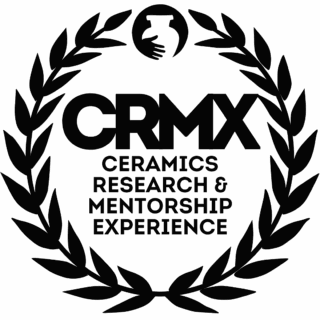It’s common for aspiring potters to begin their journey by renting space at a public studio or artist collective. However, as you become more passionate and dedicated to your craft, you may want to consider acquiring your own pottery wheel for personal use in a home studio. This can be a significant investment, so it’s important to consider several factors, including your financial means, before making your purchase. Doing so can ensure you make a well-informed decision that aligns with your goals and budget.
Electric or Kick?
Pottery wheels generally come in two types: electric and kick wheels. Electric wheels are powered by a motor and tend to be easier to operate, while kick wheels are manually operated with foot and leg power. Both wheels can produce high-quality pieces, but the choice of which to use depends on personal preference. It’s important to note that kick wheels are not necessarily less expensive than electric wheels. Although you may be able to find a used kick wheel for a reasonable price, new ones can cost upward of $1,000.
The cost of electric wheels can vary greatly depending on various factors, such as the type of wheel, brand, and its features. Generally, electric pottery wheels fall within three price ranges: budget, mid-range, and advanced models.
Budget Wheels
Budget wheels are the most affordable option, ranging from $200 to $400. These wheels are great for beginners or those on a tight budget.
VEVOR Pottery Wheel, 14in Ceramic Wheel Forming Machine, $215.99
Looking for an affordable and reliable pottery wheel that you can use at home after your pottery class? The VEVOR Pottery Wheel is definitely worth considering at just $215.99. It’s designed with adjustable legs, a detachable splash pan, and a reversible wheelhead, making it a great option for those who are getting started with pottery and want a user-friendly wheel to practice on. With this pottery wheel, you can continue to hone your skills at home and take your passion for pottery to the next level!
Mid-Range Wheels
Mid-range pottery wheels typically cost between $400 and $1000, offering more features and higher-quality materials. These wheels are ideal for those who want to take their pottery-making skills to the next level.
Nidec Shimpo VL-Lite Pottery Wheel, $975
If you’re a beginner or experienced potter, the Nidec Shimpo VL-Lite pottery wheel is definitely worth considering. This pottery wheel is lightweight and easy to use, making it a great option for those who are starting out. It’s also sturdy enough to handle larger amounts of clay, making it a versatile choice for experienced potters as well. While it may not be the most inexpensive option out there, it’s still a fantastic value when you consider the quality and features it offers compared to other high-end electric pottery wheels on the market.
Advanced Wheels
If you’re looking for the best of the best, advanced models are where it’s at. These top-of-the-line pottery wheels can cost upward of $2,000, but they are worth every penny for serious potters who demand the highest performance and precision.
If you’re looking for a pottery wheel that can handle heavy use, the Brent Model B Wheel is worth considering. With its sturdy construction, this wheel is built to withstand long hours of crafting and is an excellent choice for avid hobbyists, small ceramics businesses, or pottery teachers. The wheel features standard, neutral, and reversing speed options that users can control with an easy-to-use toggle switch, allowing for quick and simple adjustments. Additionally, the included modular-style foot pedal aids in speed precision and ensures a smooth, efficient pottery-making process.
Why the difference in price?
Pottery wheels can be a big investment, and you may wonder why they come with such a high price tag. While several features make a pottery wheel stand out, such as reversible switches, sturdy frames, and large wheel heads, to name a few, one feature is crucial for a high-performing wheel: the motor. The motor is the heart of a pottery wheel, and a high-quality one is the main reason behind the high price of these machines. A powerful motor ensures that the wheel head spins smoothly, allowing you to work your magic with clay uninterrupted. But why is it so expensive? Well, it’s all about performance and durability. A motor that can provide consistent power and speed over time requires precise construction and high-quality materials, which inevitably drive up the cost.
Buyer Beware
When shopping around for a pottery wheel, you’ll notice that they are often categorized as “budget,” “beginner,” or “professional.” However, these designations can be misleading. Just because a wheel is labeled as “beginner” doesn’t mean it lacks features found on professional models. Likewise, some high-priced wheels may not be worth the investment if they have little horsepower, aren’t reversible, or have awkwardly arranged splash pans. Nonetheless, professional models are generally sturdier, more powerful, and can handle several hundred pounds of clay. Additionally, they often have better-quality motors that can provide consistent power and speed, even with heavy loads.
See our buyer’s guide!
While cost may play a significant factor when selecting a wheel, a high price tag will not necessarily guarantee a perfect one for you. You can head to our Buyer’s Guide for more information on what to consider when searching for a wheel that fits your specifications. As you compare the features of different wheels, keep in mind the kind of pottery you create, your long-term craft goals, what conveniences are necessary for you, and where you will put your wheel.
Whether you’re a beginner or a seasoned potter, you can choose a pottery wheel to help you achieve your creative vision and make your pottery-making experience as enjoyable and successful as possible. We can’t wait to see what you build!
If you already own a pottery wheel, we invite you to share your experiences with us in the comment section below! We are always interested in hearing about what works well for you (or what doesn’t) and the reasons behind your opinions. Your feedback can help other potters make informed decisions about choosing the right wheel for their needs and contribute to the broader conversation about pottery-making and equipment. So don’t be shy! Please share your thoughts with us, and join the community of passionate potters committed to advancing the craft of ceramics!






Responses